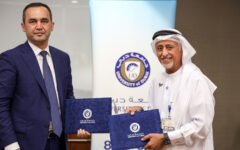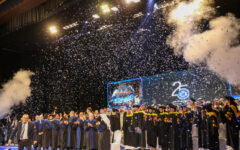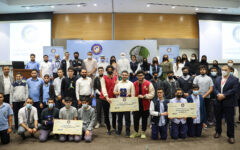Centre for Future Studies at the University of Dubai Participates in the Future of Education Forum 2122 at the University of Cambridge
April 7, 2022 2022-04-07 10:00Centre for Future Studies at the University of Dubai Participates in the Future of Education Forum 2122 at the University of Cambridge
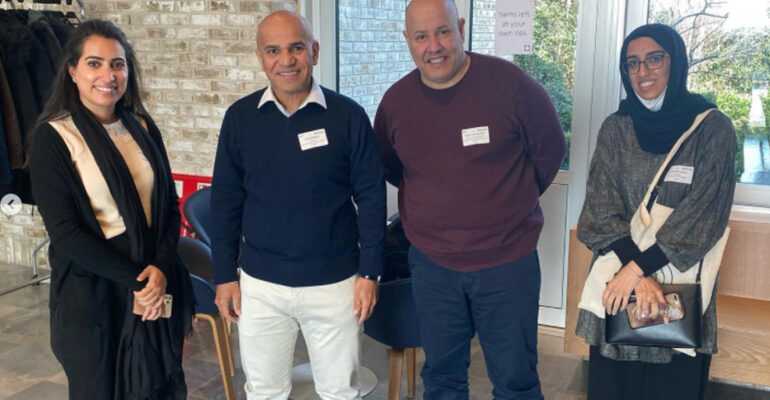
Centre for Future Studies at the University of Dubai Participates in the Future of Education Forum 2122 at the University of Cambridge
The Centre for Future Studies at the University of Dubai (UD) participated in the Future of Education Forum 2122 organized by the Centre for the Future of Digital Education at the University of Cambridge.
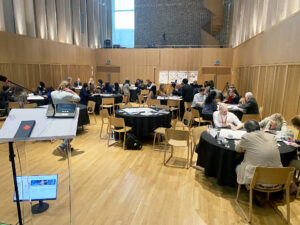
Dr. Eesa Al Bastaki, President of the University of Dubai, presented an explanation of the University’s vision in establishing the Centre for Future Studies, which was established in the beginning of 2020. “The center aims to have a vital role in achieving the future foresight strategy launched by the UAE government in 2016, and similarly, in qualifying and training specialized competencies in this area,” he said. Dr. Al Bastaki added that the center is playing an important role in achieving the vision and plan of the UAE’s centenary, to have the best educational system in the world in 2071.
He said that the center is one of a group of centers hosted by the University of Dubai and considered unique in the region, which works to build scientific capabilities to foresee the future and promote future studies in the sectors of health, energy, education, security, transportation and other sectors.
Dr. Al Bastaki also stressed the importance of future studies, their objectives, their curricula and pillars on which they are based, noting that these studies help motivate people to start thinking about the future, imagine, design, implement, and work to develop their capabilities in various fields.
He added that the center’s executive board includes a number of international experts in exploring the future, including Peter Bishop, Andy Haynes, Scott Smith, Drake Woodgate and Terry Home.
Dr. Saeed Al Dhaheri, Director of the Centre for Future Studies at the University of Dubai, said that my colleague, Dr. Fawaz Abu Sitta, Director of Future Research at the Centre, and myself were invited to participate in this first forum of the University of Cambridge in anticipation of the future of education a hundred years from now. “We are proud to be a part of this great event which falls in line with the vision of the UAE’s wise leadership and their mission towards their strategic futuristic plans,” he said.
Dr. Saeed added: “It is necessary to foresee the future of education so that we can absorb the variables that affect it, especially the accelerating technological innovations such as artificial intelligence, the formation of the Metaverse world, and immersive learning experiences, which will provide customized learning experiences for each student according to his/her capabilities, desires, and understanding of these variables.” Studying these technologies will help us draw scenarios and alternatives for the future of education and provide us with the opportunity to shape and prepare the future we want for our grandchildren, he said.
In his final remarks, he added that without future studies and research, governments cannot win the battle over many social, environmental and economic turmoil and that the winners are those who enjoy taking proactive steps and a forward-looking vision in shaping the future.
Commenting on his participation in the conference, Dr. Fawaz Abu Sitta indicated that the conference aimed at designing a challenge to anticipate the future of education in 2122 based on scientific research and technological signals that we see now, such as the implantation of electronic chips in the brain and the possibilities of genetic modification, which is expected to make a revolution similar to the revolution of artificial intelligence that we are living in now. He highlighted the fact that having access to artificial intelligence and applying its best practices to robotics and immersive learning experiences that engage the five senses, are likely to be achieved in the future. “Some of these signals are still in the process of science fiction now, but will become reality in the future, and these technical trends will affect the forms and structures of the learning process, knowledge acquisition and teacher work in the future,” he concluded.
 Apply Now
Apply Now 

